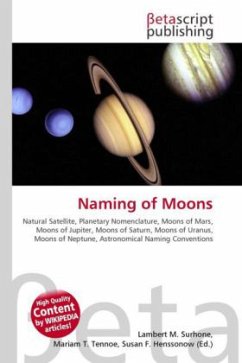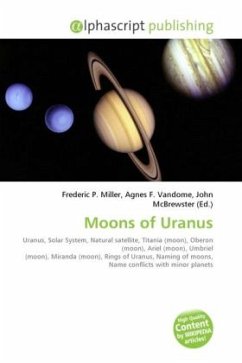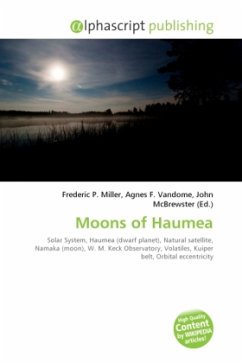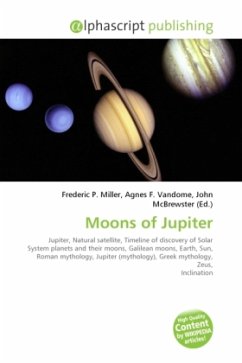Please note that the content of this book primarily consists of articles available from Wikipedia or other free sources online.The naming of moons has been the responsibility of the IAU''s committee for Planetary System Nomenclature since 1973. That committee is known today as the Working Group for Planetary System Nomenclature (WGPSN). Prior to its formation, the names of satellites have had varying histories. The choice of names is often determined by a satellite''s discoverer; however, historically some satellites were not given names for many years after their discovery; for instance, Titan was discovered by Huygens in 1655, but was not named until 1847, almost two centuries later. Before the IAU assumed responsibility for astronomical nomenclature, only twenty-five satellites had been given names that were in wide use and are still used. Since then, names have been given to 126 additional satellites: 44 satellites of Jupiter, 43 of Saturn, 22 of Uranus, 11 of Neptune, 3 of Pluto, 1 of Eris, and 2 of Haumea. The number will continue to rise as current satellite discoveries are documented and new satellites are discovered.
Bitte wählen Sie Ihr Anliegen aus.
Rechnungen
Retourenschein anfordern
Bestellstatus
Storno








